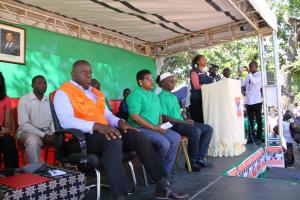More than 500 000 doses of cholera vaccine available for Cabo Delgado
Pemba, Mozambique. 16 May 2019 – A five day emergency cholera vaccination campaign which was launched today by the Ministry of Health in Mozambique with support from the World Health Organization (WHO) and other health partners, will see over 285 000 people receiving oral cholera vaccine.
The campaign began today in the Eduardo Mondlhane Cholera Treatment Center (CTC) and it will cover the areas most affected by Cyclone Kenneth - the districts of Pemba and Mecufi and the localities of Metuge-Sede and Nacuta.
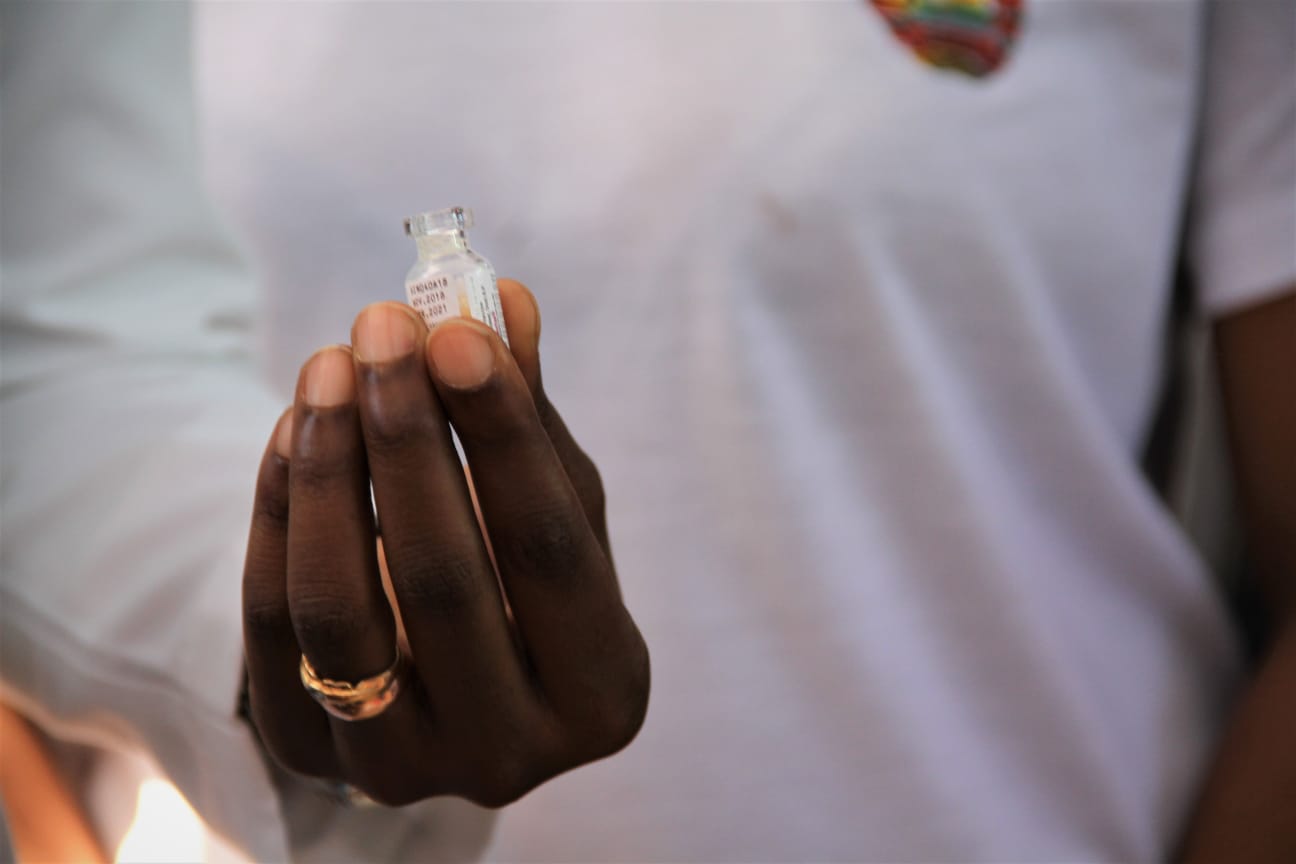
This campaign will target around 285 000 people over a year old in two separate rounds. The full effect of the vaccine will be measurable after seven days, but it is expected to reduce both the transmission of the disease as well as new cases. The campaign will also include community mobilization and water sanitation activities.
The arrival of the vaccines was kicked off by a concert with a local musician.
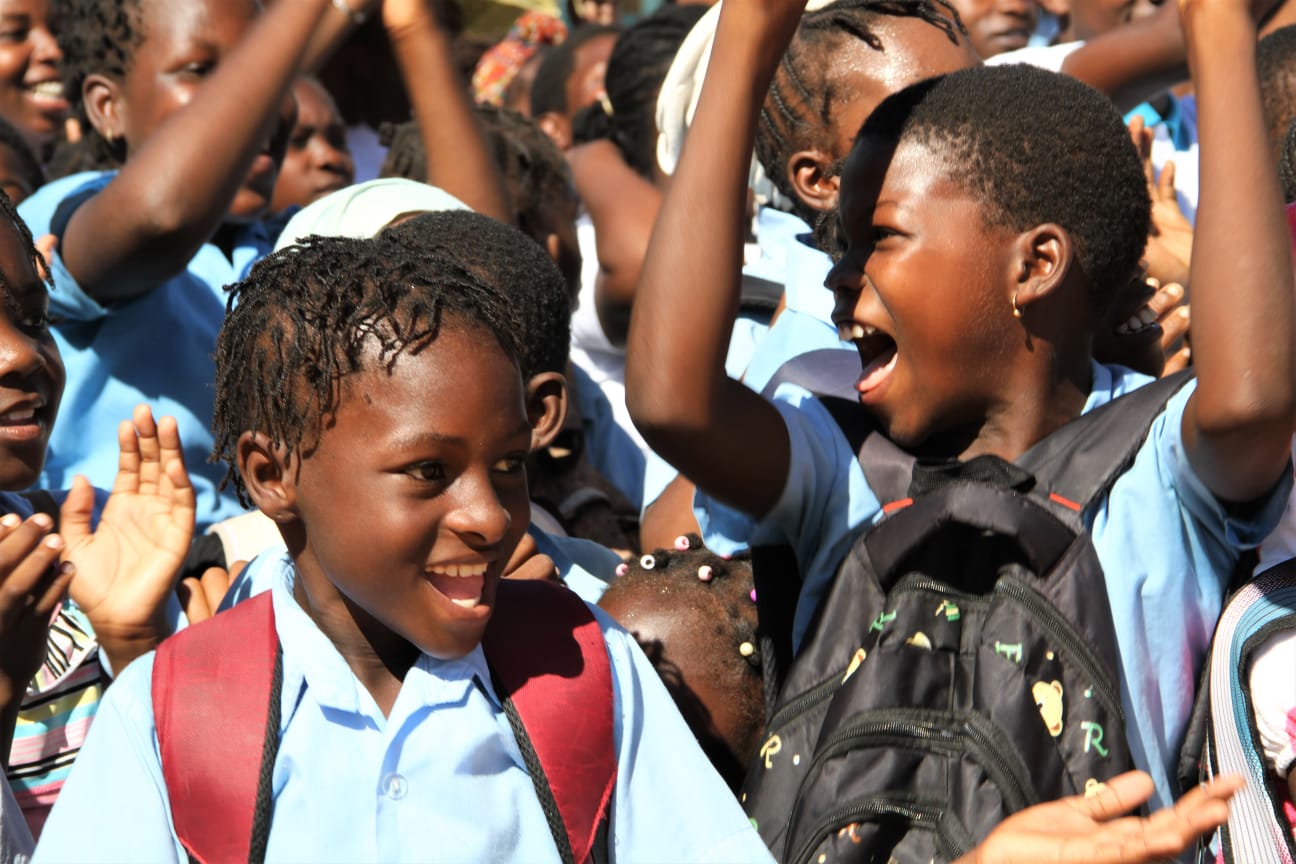
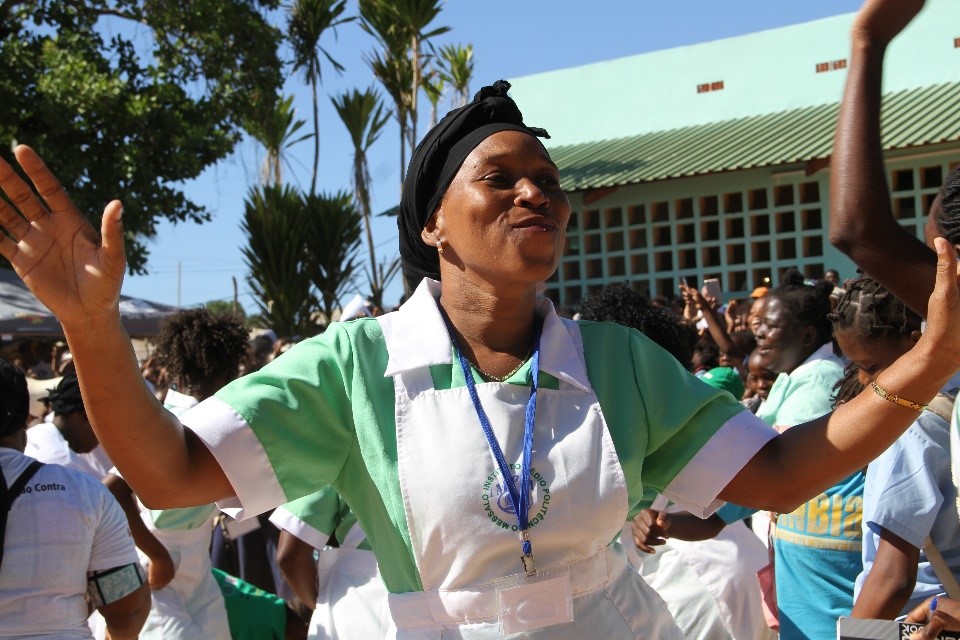
Luisa was the first girl to get vaccinated in Pemba. Her mother says she feels “relieved now that my children have their vaccination cards, as I was worried about the increasing risk of getting the disease.”
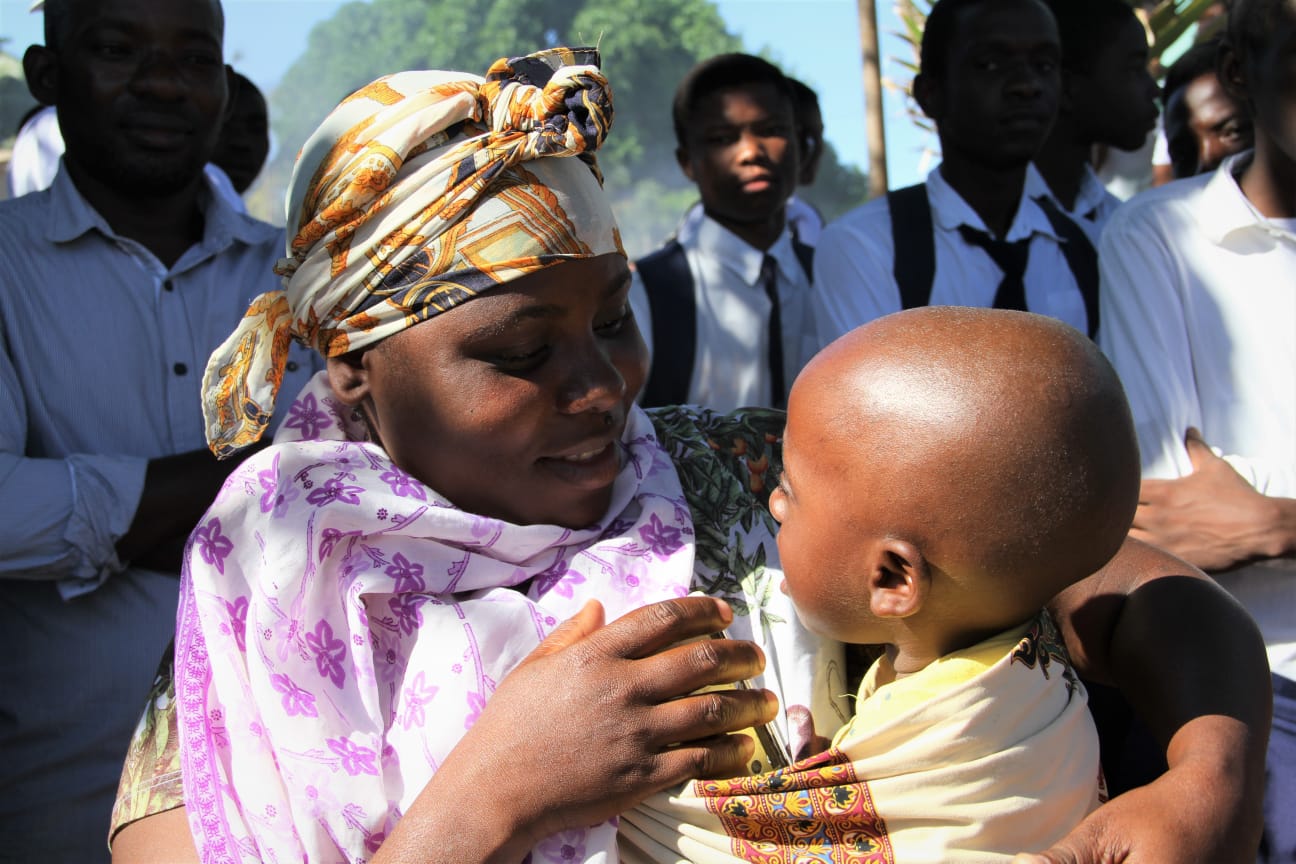
“My neighbourhood is still flooded and I was very happy when the vaccines arrived in the airport this week,” commented Lorenzo, who was in the long queue to be vaccinated and to dip his finger in blue ink to confirm his vaccination status.
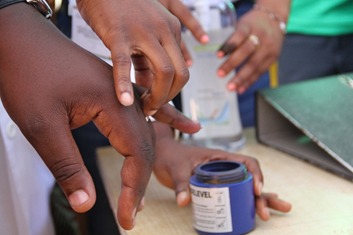
By May 14, 182 cases of cholera had been reported in the area: 151 in Pemba, 11 in Mecufi and 20 in Metuge. Cholera treatment centres have been set up in Mecufi and Metuge and WHO, in collaboration with the Centres for Disease Control and Prevention (CDC), conducted a rapid outbreak investigation training for participants from the 17 health districts of Cabo Delgado earlier this month. Following the declaration of the cholera outbreak, a CTC at Eduardo Mondlane Health Center was established with an initial capacity of 50 beds.
Concerning the emergency response, the Governor of Pemba, Júlio Parruque, reminded the attendees that “the vaccine is effective, but we can’t forget that we still need to take the necessary hygiene measures like cleaning our food before cooking and treating our water in order to be prevent other diseases as well.”
Dr Nurbai Calu, WHO coordinator for the response in Pemba, highlighted the privilege of “having access to this vaccine in order to protect our health and be able to continue our everyday normal life.”
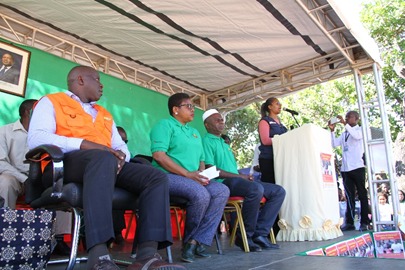
The governor, together with WHO and health partners visited the CTC, where patients such as Emera explained that “at the beginning the hardest part was the nausea and dizziness we felt.”
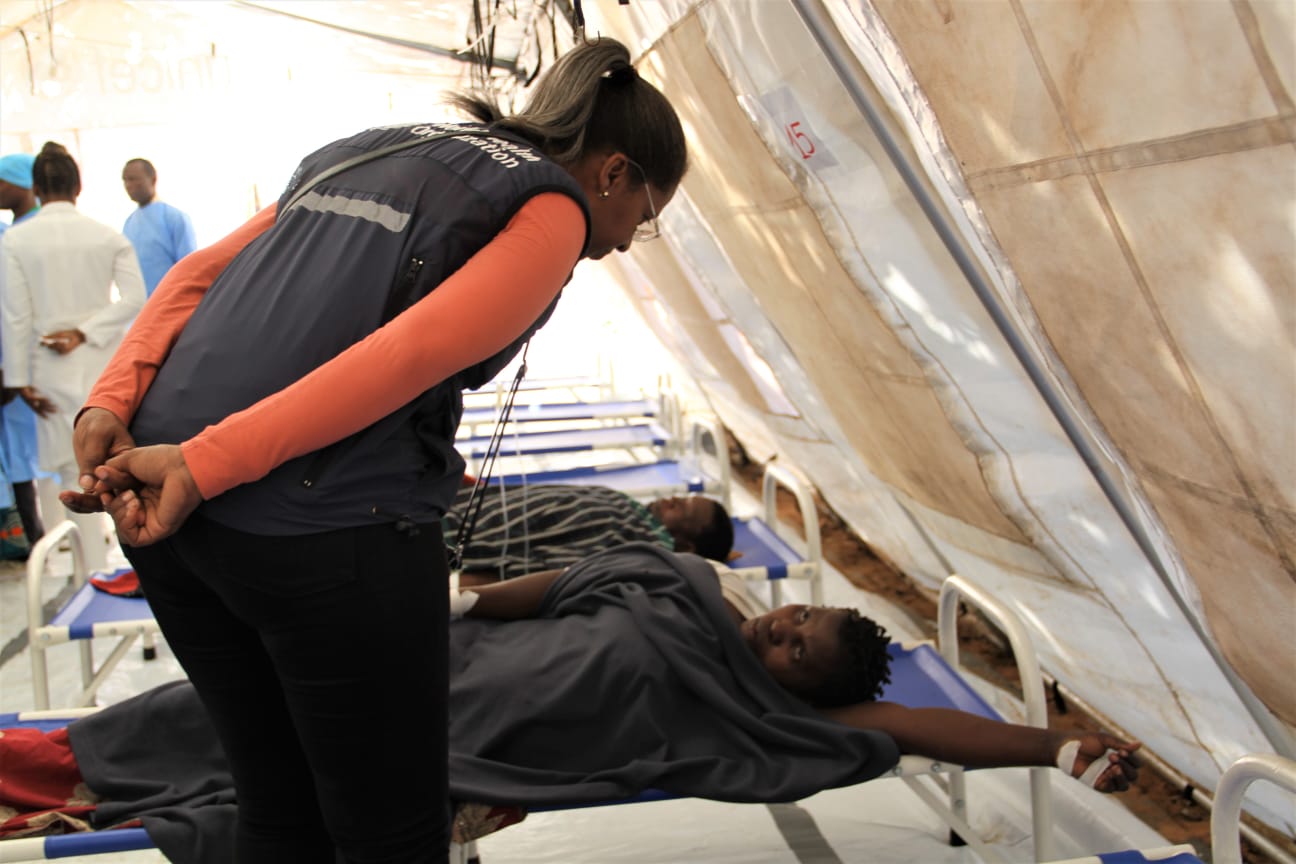
Cyclone Kenneth’s impact on the region was huge: as of 9 May more than 250 000 people had been affected and 45 deaths had been reported. Making matters worse, 19 health facilitates were partially or totally destroyed, necessitating the establishment of temporary health facilities by the Cabo Delgado Provincial Health Directorate.
Cyclone Kenneth
Cyclone Kenneth devastated the province of Cabo Delgado between 25 to 28 April, particularly affecting the districts of Macomia, Mecufi, Metuge, Ibo and Quissanga. It increased incidence of diarrhea, resulting in these districts being considered high risk for the emergence of cholera.
The level of water has decreased in the river basins in Cabo Delgado but expected rains might keep the provinces on alert, as water levels remain high and the areas remain inaccessible. WHO reports limited access to the affected districts due to the destruction of the roads, the telecommunications network and the interruption of electricity.



